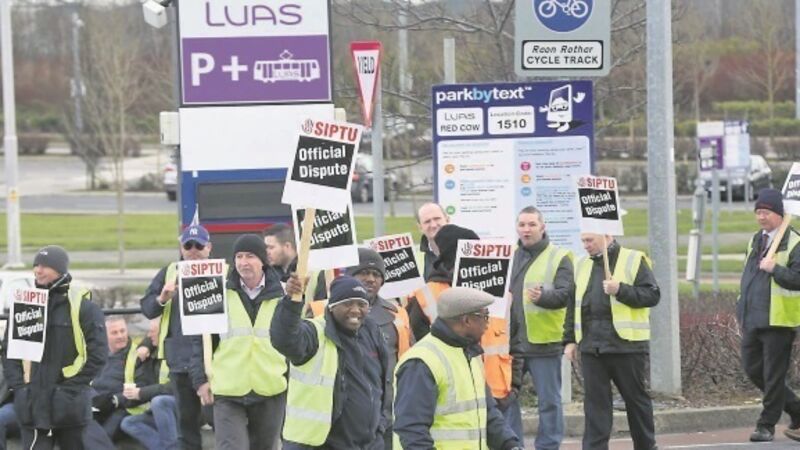Pensions row infects transport strike talks as relations rapidly deteriorate

Union sources are indicating that the battle over pay at Dublin Bus, Bus Éireann, and Irish Rail looks set to be compounded by pension issues at all three companies and that the composite unrest may lead to stoppages across the workforces.
Yesterday, Siptu and the National Bus and Rail Union (NBRU) confirmed they would be balloting their members in Dublin Bus for industrial action over a Labour Court pay rise recommendation of 8.25% over three years. That fell well short of what the drivers wanted — there had been demands for increases in the region of anywhere between 18%-30% in some quarters, not least in light of the fact that Luas drivers succeeded, albeit after a long campaign of strikes, in securing increases of approximately 18% over four years.










